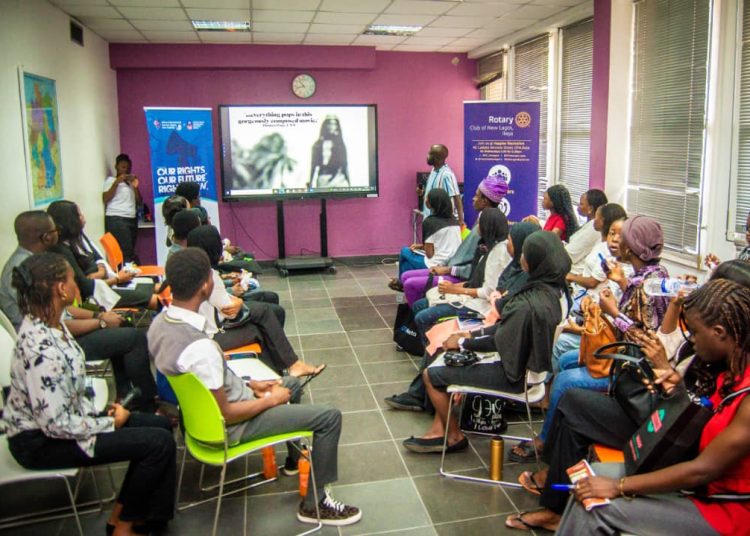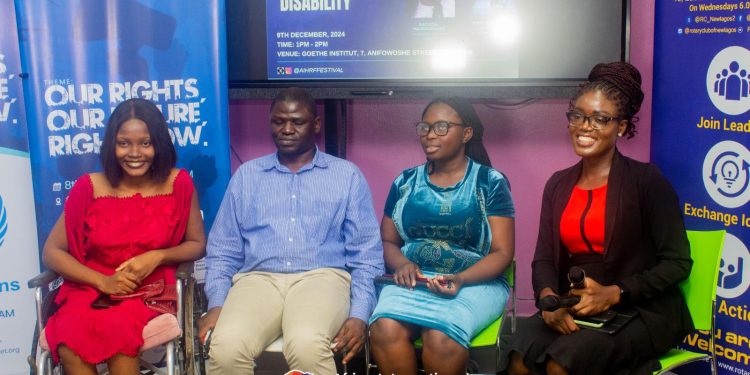The third edition of the Africa International Human Rights Film Festival has placed significant emphasis on the media’s role in promoting and amplifying disability rights.
The festival, held from December 8th to 10th, 2024, in Lagos, featured a panel discussion on disability rights and the media.
Kemi Odusanya, who is visually impaired, shared her experience of losing her sight at a young age due to retina detachment.
She warned that as technology evolves, the risk of disabilities, especially vision-related ones, also increases. Odusanya also noted that the dangers of prolonged phone screen usage can damage the retina.
Sophie Oluwa, the panel’s moderator, reflected on her personal journey on suffering with eye issues, before being diagnosed with glaucoma.
She stressed the importance of understanding that people are not only born with disabilities but can also be acquired later in life. Oluwa called for greater empathy toward people with disabilities and reiterated that “disability is not an inability.”
Saheed Okerayi shared his story of losing his sight at the age of six due to an accident. He emphasized the importance of how society portrays people with disabilities and the impact it has on their sense of identity and inclusion.
Rachael Majekodunmi, who began using a wheelchair after a severe sickle cell crisis in 2020, spoke about the stereotypes she encountered.
She encouraged others with disabilities to remain true to themselves, stating, “Being disabled is not the inability to chase your dreams or to be yourself.”
The panel also highlighted the importance of the role of the media in promoting inclusivity.
Okerayi emphasised the impact of societal portrayal on people with disabilities’ sense of identity and inclusion.
He also condemned the media representation, particularly in the film industry as he urged society to become more aware of how to interact with and support people with disabilities.
Odusanya opined that the media has often portrayed people with disabilities as less than human and called for journalists to shift from using the phrase “people living with disabilities” to simply “people with disabilities.”
She also stressed the need for greater inclusion of people with disabilities in everyday society, beyond designated awareness days.
Majekodunmi encouraged people with disabilities not to let their circumstances deter them from pursuing their dreams, asserting, “I think, therefore I am; I think, I can.”

Addressing how civil servants with disabilities are treated, Okerayi expressed his dismay at the negative stereotypes, recounting instances where he was treated as a beggar or someone less privileged. He urged society to become more aware of how to interact with and support people with disabilities.
Odusanya also critiqued social media for its lack of inclusivity, offering several suggestions for improvement. She advised that capitalizing the first letter of every word when writing hashtags as it helps screen readers better interpret content for blind users.
She also emphasized the importance of subtitling videos and audio, using bold and large fonts for subtitles, and ensuring proper colour contrast for people who are visually impaired. These steps, she noted, would make both social media and traditional media spaces more inclusive.
The festival’s theme “Our Rights, Our Future, Right Now,” emphasised the importance of promoting and protecting human rights, including disability rights.

